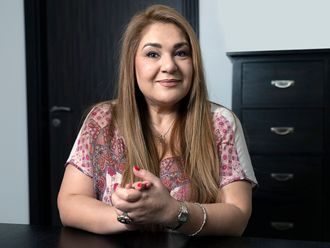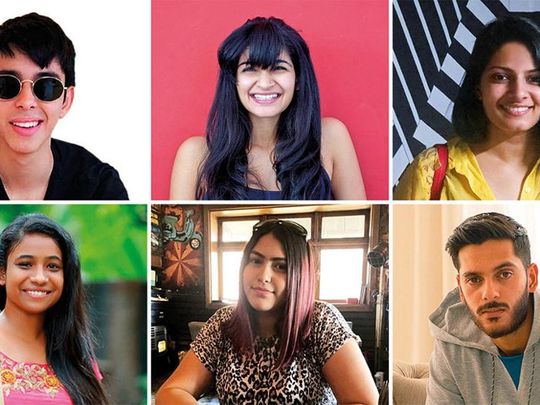
Alicia Souza, self-employed illustrative designer, RMIT University, Australia

Growing up in Abu Dhabi in an unartistic family as a tomboy with a proclivity for technical, crafty things – ‘I had my own toolkit’ – and a nerdy love for mathematics, Alicia Souza never imagined in her wildest dreams that she’d become a successful illustrator – one who’s an internet sensation with an Instagram following of 239,000 people, a successful online merchandise store featuring her cartoony illustrations (mugs, pillowcases, wall-hangings, T-shirts) plus a portfolio that boasts clients such as Google, Yahoo, Chennai Super Kings, Tinkle (the popular Indian children’s comics) and Penguin.
But 32-year-old Alicia’s journey is proof that a successful career doesn’t mean knowing where your passions lie right at the outset and hindsight is 20/20.
‘Only when I look back can I see how much I’ve adored drawing,’ she says, describing the first time she drew a wonky chalk mural of a motorcycle on a wooden partition at home as a four-year-old.
Inherently creative, Alicia continued drawing and sketching and doodling just as much as any other kid, never recognising her talent until the alumnus of St. Joseph’s School, Abu Dhabi, illustrated the school magazine’s cover and her art teacher emphatically declared that she’d be wasting her life if she didn’t pursue something in the arts. Just like many of her classmates, Alicia too thought illustration was an odd and unstable career choice: ‘I just assumed that I’d have a 9-5 job, because that’s what everyone I’d ever known did, and that this drawing thing would be a hobby.’
[At home in the UAE, these cross-cultural BFFs are breaking barriers]
Her engineer dad, however, quelled her apprehensions about the feasibility of pursuing communicative design at Royal Melbourne Institute of Technology in Australia. ‘Dad hated his field excessively and always insisted my siblings and I pick a job we like.’
Sometimes, you need to do things you dislike to discover your true calling, and a four-year course in design helped Alicia realise she hated design and loved drawing when she did a short elective on illustrations. ‘On portfolio review day, my professor emailed saying a newspaper editor wanted me to illustrate for them and that I’d won an illustration achievement.’ There was no looking back.
In Alicia’s own words, she ‘earns a good living that allows for savings’ but it didn’t happen overnight and involved a lot of self-doubt, soul-searching and persistence. When illustration-led design jobs were hard to come by, Alicia worked part-time in banking in Melbourne, saved up, then moved to India to co-found and illustrate for lifestyle brand Chumbak in 2012, and decided to freelance. And she doesn’t recommend risking financial security for creative success to everyone: ‘Running my own business was a nightmare before my business partner came along. When I started, I barely knew anyone in Bangalore city, let alone illustration. I didn’t know if this was a career that existed beyond my imagination.’
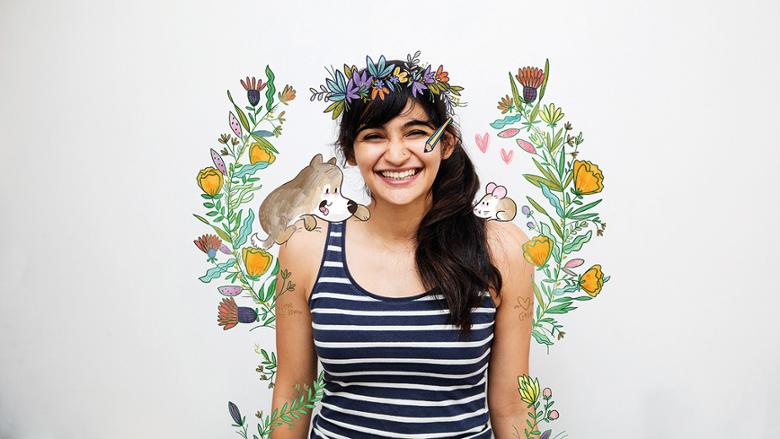
With persistence, the relaunch of her online store in 2016 was met with overwhelming positivity and Alicia could set up the gifts and accessories store she loved browsing in the UAE as a kid: ‘The products and greeting cards at Hallmark and Gulf Greetings were things I’d love looking at. It’s how I got into manufacturing.’
But Alicia is very cognisant of the minor but important role luck played in her success, which is why her advice to young artists who contact her is realistic: ‘Illustration is a wide field, ranging from editorial and fashion to cartoons and politics. So if you’re pushed to study something else do it and draw on the side. No education ever goes to waste.
‘Being a full-time illustrator involves long hours, working on changes, doing accounts, sticking to client deadlines and always keeping your eyes peeled for funny, quirky things to draw,’ she says.
To Alicia, these minor cons are eclipsed by the heart-warming satisfaction she experiences every time a stranger in a foreign country gushes about her work, or the joy she feels going to bed at night: ‘Nothing in the world is better for your soul than doing something you like every single day as your job. I feel like I’ve won the life lottery.’
Juan Salazar, Royal Central School of Speech and Drama, London
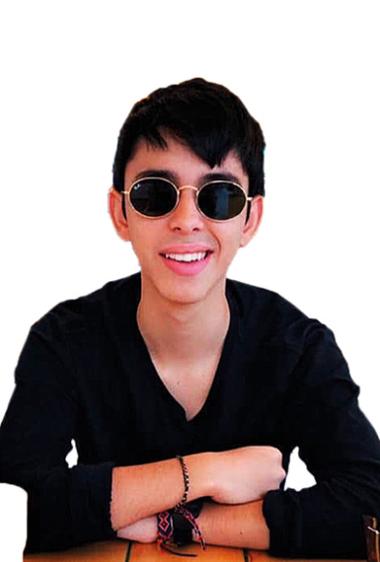
All the world’s a stage and all men and women are merely players. Eighteen-year-old Juan Salazar’s life plan is to play the many parts that this famous opener to the monologue in Shakespeare’s As You Like It mentions, and do it for a living when he starts at The Royal Central School of Speech and Drama in September to pursue his BA in Performance Arts.
It’s not a decision his lawyer parents were a 100 per cent on board with but his passion triumphed over their misgivings, not to mention the fact that the Kings’ School Dubai alumnus was one of 11 students globally to be offered a scholarship by the drama school that churned out thespians such as Dame Judi Dench, Sir Laurence Olivier and Andrew Garfield, to name a few. As far as acting chops are concerned, Juan’s got plenty.
However, an unstable career susceptible to the fickle nature of the entertainment business didn’t deter Juan, who loves drama for its ability to move people rather than stardom: ‘Any profession I choose will take up a grand majority of my time and won’t be easy to excel in, so I might as well choose something I enjoy the most.’
Diagnosed with ADHD in 2006 when he first moved to the UAE from Bogota, Columbia, Juan couldn’t understand or speak English and had no means by which to interact with people, except to mimic their superficial mannerisms and quirks. While he picked up English, his proclivity for mimicry and impressions remained, and was reinforced when they made his mum laugh. ‘What really started it all was me imitating Johnny Bravo’s raspy manly-man voice at the dinner table and my mum bursting into laughter.’
Juan’s quick wit and talent for original comebacks soon earned him the title of the beloved class clown, but also allowed himself to be his authentic self. The one other time he experienced similar freedom – of expression and from judgement, in a classroom setting – was at his first drama class aged 13. ‘Going all out was the point of the class.
‘I thought drama was just acting, but it’s a mixture of psychology, politics, philosophy, human dynamics, a reflection on the human experience, and gave me free reign to talk about other things that I was interested in such as video editing, music, business, philosophy and astrophysics.’
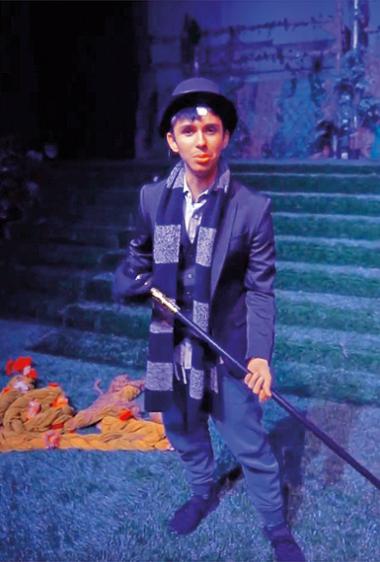
Drama isn’t all stuffy Shakespearean productions – explains Juan whose favourite play is A Disappearing Number by theatre Complicite that unravels the beauty of mathematics through the story of the collaboration of mathematicians Srinivasan Ramanujam and GH Hardy.
The compulsory subject that was introduced to Juan and his peers in year nine soon became a compulsion thanks to his drama teacher and role model/inspiration who ‘brought the joy and beauty of theatre to the minds of young people.’ Mr Pugh was also the one who reassured Juan’s parents that they weren’t making a big mistake letting him pursue theatre and drama.
While that resolved the dramatic conflict in Juan’s life, watching the San Junipero episode of the TV series Black Mirror during the summer holidays after his GCSE was his narrative’s climactic point: ‘It brought me to tears. I couldn’t believe the empathy I felt for these characters. If I could do that for anybody else, I would be absolutely fulfilled. That’s when I decided to take up theatre studies at A-levels.’ The two other subjects Juan chose were Literature and Economics – at the behest of his parents. But all three subjects helped him build an education perfect for his dream career.
Juan’s five-year-plan involves starting an independent theatre company, touring theatre festivals and a master’s in film – his course at Royal puts him in good stead since it will cover financing a production, direction, writing and engaging the minds of students with in-depth discussions on myriad topics and challenge the status quo.
‘This career is going to help me become an interesting person – that’s invaluable even if I have to live on minimum wage.’
Ranjana Sethuprasad, Singer and Artist Manager at Exodus, KM Music Conservatory
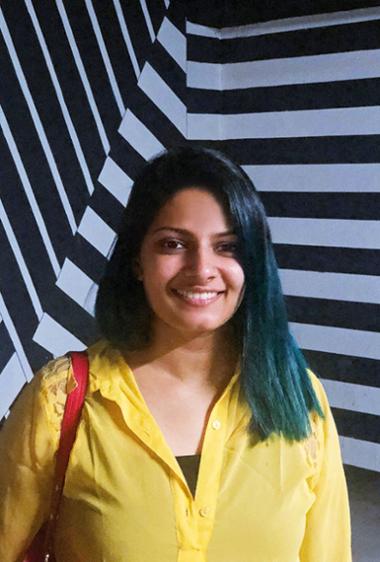
Ranjana Sethuprasad and her dad would answer their friends’ and family’s quintessential query of ‘what do you want to be when you grow up?’ with popstar. They’d laugh it off as the pipe dreams of a 13-year-old girl – until they were cheering her on wonderstruck as she performed as a backup vocalist with legendary Academy Award-winning music director AR Rahman in 2017 on music programme MTV Unplugged. ‘Having the chance to work with him at five different occasions – including as backup vocalist at [football tournament] ISL 2015 and as part of Sempre Libera, a pop-opera group initiated by him – is [an opportunity] that I’m eternally grateful for!’ say Ranjana.
Her musical connection to the virtuoso runs deeper – she completed her BA Hons in Music from KM Conservatory, Rahman’s music college in Chennai, India. It’s hard to bracket the 22-year-old Our Own English High School Dubai alumnus who’s a jack of all musical trades – the singer-songwriter is a Trinity Guildhall trained keyboardist, plays the ukulele, performs at venues and works as an artist manager at Exodus in Chennai, where she helps dreamers like herself glide into India’s cutthroat entertainment industry and succeed.
While being musically multifaceted wasn’t planned, it is what helped Ranjana gain a foothold in the Indian music industry that’s notoriously hard to break into, and turn what’s conventionally considered a reckless career choice into a dependable profession. Ranjana has willingly tried all the different options a career in music offers, from voiceovers, singing jingles and covers and even singing and writing the lyrics for a soon-to-be-released digital novel-turned- audio book.
And while she loves her job, she’s doesn’t view it through rose-tinted glasses. ‘You can’t be picky. This is not a path where you study, get a degree, apply for jobs and get placed. You constantly work without appreciation, recognition and salary and build experience through credibility,’ she says, which is why she exhorts that aspiring musicians need to explore all their options in terms of genres, instruments and designations. ‘It’s sad how ignorant the public is about the labour of sound engineers, music producers, songwriters and instrumentalists that goes into creating a hit song.’
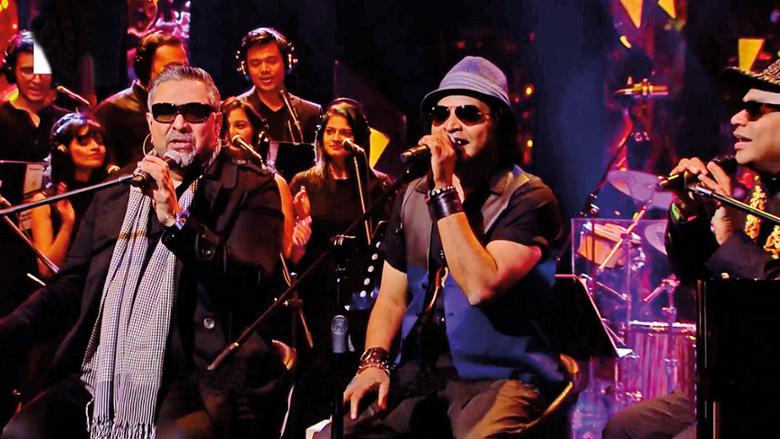
Her formal musical education allowed her that exploration, spending four years (the final year at Middlesex University in London) studying medieval pieces, music history, composing sounds using software, analysing the influence of religious, social and political movements on music. ‘I learnt to put myself in other people’s shoes and become cooperative and patient’ – skills invaluable to an artist manager whose job involves networking, coordinating and convincing clients about the success of a project, explains Ranjana.
Luckily for Ranjana, she never had to convince her family, who’ve always been in tune with her aspirations and hereditary love for music – her grandma has a BA in Carnatic music and majored as a Veena player, her dad aspired to be a singer but bit the bullet under family pressure and opted for the secure profession of an engineer. ‘He never stopped singing,’ says Ranjana, describing how he exposed her to Boney M, ABBA and George Michael, Ilayaraja and AR Rahman, and ensured she pursued music. ‘He directed me towards KM Music Conservatory as I didn’t have any concrete plans after school apart from wanting to study western music, having won the 2014 VGF song writing competition and having my jingles aired on the radio.
‘But I’d crossed the application deadlines for foreign universities that offered a Music Business course’ – a course the studious commerce student (who scored 90 per cent) arrived at as a perfect blend of her business acumen and love for music after researching job opportunities within the entertainment industry.
Years later Ranjana’s stint as a western vocals teacher led her back to the business end of music – her boss enquired if she was interested in artist management and she found her ‘true calling’. She still gigs around Chennai performing at five-star hotels and pubs to enthusiastic audiences who love her renditions of retro classics, pop and rock. ‘Being an artist and managing one are flip sides of the same coin,’ she says.
Sharon Kuriyan, Forensic Scientist, Jain University
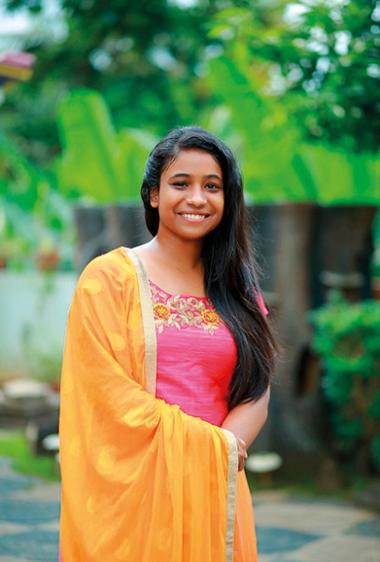
The pen is mighty but a tweezer in the right hands can be mightier and pick apart the truth through cold, hard evidence, says 21-year-old Sharon Kuriyan. It’s what made the aspiring investigative journalist switch gears to forensics. That and her parents’ apprehensions about the safety of the former profession. ‘When I was in grade eight, I’d read up investigative reports online, which is when I came across the Aarushi Murder case files (the famous unsolved 2008 double murders in Noida, India), and I felt Aarushi was denied justice because the investigation [had been botched up].’
This strong sense of justice is what spurred on the Our Own English High School Sharjah alumnus to forge a career in forensics, completing a BSc in Amity University and now finishing an MSc in Forensics at Jain University, Bangalore – two of the handful of institutions that offer forensic science degrees in India. Armed with these qualifications, Sharon hopes to study and train abroad further (pursuing a doctorate), and work with the FBI. Until then, she hopes to work at one of India’s many Truth Labs – independent forensics labs first established in 2007 – and seek justice for the underprivileged who can’t afford private investigators or lawyers.
But the road to justice is long and arduous and isn’t always about being clad in biohazard suits lifting fingerprints off crime scenes – it is often hours and days of tedious processing and logging of evidence. ‘The fantasy of TV doesn’t match up to the reality of the job,’ Sharon says. A degree doesn’t usher you directly to crime scenes and when you do get to one they are going to be ‘gruesome, dirty, uncomfortable, depressing and ugly. You’re rarely going to be able to detachedly sip coffee while pointing out blood spatter patterns.’ You need to have a cast-iron stomach and also learn to think like a criminal – a feat she has accomplished during her three-year bachelor’s studying victimology (the science of how a victimised individual responds), reading facial expressions and body language under the tutelage of professors who’ve worked on real-life crime scenes and serve as expert witness in court cases.
‘My mum is very wary of lying around me now because I can catch her in an instant,’ Sharon laughs proudly. Apart from unravelling family members’ white lies, Sharon hasn’t had an opportunity to solve real cases yet but she’s reanalysed widely-reported murders and most recently the death of the CEO of Café Coffee Day (CCD). ‘Forensics has changed the way I look at life and moulded me into a strong personality,’ says Sharon, whose powers of deduction and observation have been enhanced, turning her into an aspiring Sherlock Holmes.
While real-life forensics might not be as trendy or cool as its swashbuckling TV/literary counterparts with their glib one-liners and catchphrases, it’s undoubtedly an exciting field that trains you in a plethora of subjects and skills such as criminology, forensic anthropology, toxicology, ballistics, cyber forensics, handwriting examination and wound examination and analysis of explosives and post-blast residue. The course also involves moot court sessions – mock trials where Sharon and her peers familiarise themselves with what it’s like being an expert witness in a case and how their testimonies can affect the ruling.
However, it’s question documents and fingerprinting that Sharon has chosen to major in: ‘question documents involves establishing the authenticity and origin of documents including letters, cheques, wills, blackmail notes, suicide letters etc by analysing handwriting patterns (which are as unique as fingerprints).’
Meanwhile, Sharon is grateful to have stumbled on her dream career. ‘Forensics isn’t an easy field but it’s evolving and changing rapidly, which makes it fascinating in terms of a future workplace.’ All you need is a basic science background (Sharon studied biology, chemistry, physics and mathematics in Grade 12) – and watch plenty of The Mentalist and CSI reruns for a better idea of what you’re in for’.
Abigail Ruth D’Mello, Animal Behaviourist, Flinders University
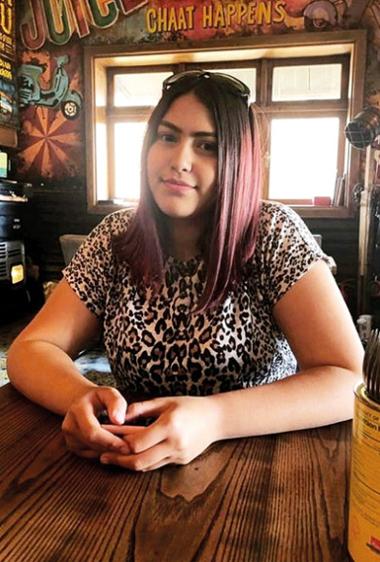
While her classmates were memorising morals about the pitfalls of overconfidence from the hare and the tortoise story, four-year-old Abigail D’Mello demanded a turtle, named her Sally and ensured her love of animals was cemented for life. After Sally, many pets kept her company – from chicks, love birds, parrots, and a goldfish, to her dog Mickey. If her household sounds like a zoo, it’s a compliment to this animal behaviourist who followed in the footsteps of her hero Steve Irwin, the late celebrity Australian zookeeper, and went all the way to Australia – a hub of biodiversity and wildlife – to pursue a BSc in animal behaviour at Flinders University. Writing an essay in school on the topic ‘what do you want to be when you grow up’, saw Abigail write veterinarian without a second thought, but as much as she loved animals she didn’t want to pursue a seven-year medical degree or stomach surgeries: ‘I get queasy around blood,’ confesses the 20-year-old alumni of Our Own English High School Dubai.
And so, a quick internet search of ‘jobs with animals’ put her on the scent of the lesser-known field of animal behaviour. But her journey from Dubai to Adelaide was fraught with turbulence even before her flight took off; after all, dedicating her future to animals was a whole different ballgame to badgering the family to visit zoos every Eid holidays: ‘They were a bit concerned about job opportunities because this isn’t a mainstream degree,’ Abigail says. But the humanities student who had no science background convinced her family her course wasn’t a passing fancy by scoring good grades in foundational biology and chemistry, which were mandatory subjects in the first year. ‘I wasn’t the best student in school but studying something I was passionate about in university saw me score distinctions throughout!’
Abigail’s excitement is palpable as she describes the practical and theoretical break-up of her three-year-course, which included subjects such as Genetics and DNA, Marine Biology, Animal Diversity, Ecology and practical research. It also involved field trips: ‘we’d go hiking looking for sleepy lizards, learn how to microchip them and then track them to note their mating patterns and see if they are monogamous.’ Abigail and her classmates would leave out plates with sugar syrup, replicating nectar in a bid to observe bee behaviour – ‘they go back to their hive, and inform the colony of the plate’s direction by doing a little waggle’ – and on other days, the beach was the classroom, where Abigail would have to photograph dolphins and attempt to identify their population size through a ‘mark recapture method. Did you know each dolphin fin is as individual as a human fingerprint?’, she asks excitedly.
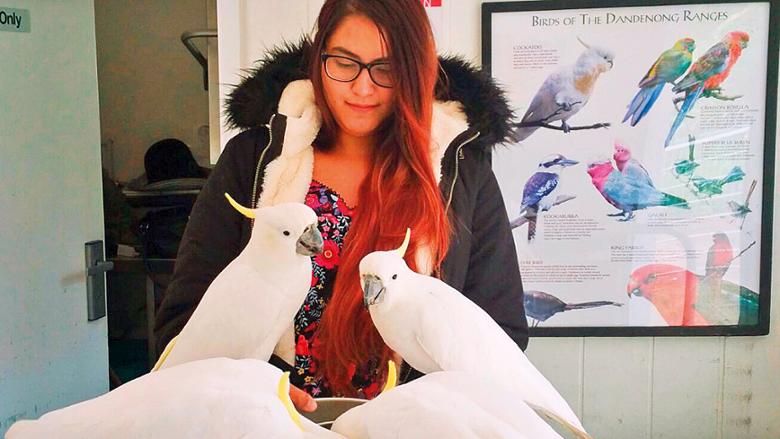
It’s no surprise that these quirky animal factoids come instinctively to Abigail, who loved watching David Attenborough’s documentaries during her childhood and considers the pioneer natural historian one of her greatest inspirations. ‘I felt like [he already prepared me] for university before it even started! A lot of my lecturers even used his video clips to teach us.’
And Abigail has learnt innumerable things on this course that she’s put to practise during her time volunteering for the RSPCA (Royal Society for the Prevention of Cruelty to Animals), an Animal Welfare Charity where she hopes to secure a permanent job – from overcoming her fear of insects by rearing two crickets for a school assignment to dabbling in dog behaviour training at the RSPCA. ‘I realised that all animals irrespective of size need care and attention. Their behaviours are so complicated and are the product of years of evolution, natural selection and their environment. It’s true that those who teach the most about humanity aren’t always human,’ Abigail says, her awe not dulled at all by passing her course with a distinction.
Contrary to her family’s fear of lack of job opportunities, Abigail’s degree is the gateway to a wild life as either a zoologist, or a police dog trainer or working in animal conservation, species restoration and, of course, as a zookeeper.
Chirag Suri, Cricketer, UAE National Team and founder of Front Foot Cricket Academy, Heriot-Watt
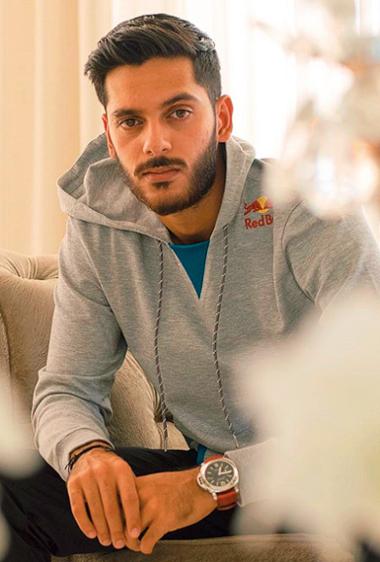
Chirag Suri’s earliest memories involve having a cricket bat in his hand playing backyard cricket with cousins. In fact, he feels cricket is part of his DNA. ‘My father loved cricket and also played at university level in both India and the UK. My dad was my first coach. Every Indian family is a cricket-loving family.’
There’s much truth in that statement – the sport is one almost every Indian family follows with a patriotic zeal, spending weekends playing and family dinners rehashing the latest win or loss. But rarely does that passion for the game every translate into allowing children to pursue it professionally. That’s what makes the 24-year-old a rarity – he plays for the UAE’s national cricket team.
‘My family has been completely supportive. Whenever my runs have been low or I’ve not played well, they lift me up and encourage and push me.’
Growing up in Dubai, Chirag played cricket not just at home with his father and older brother, but also at school in Repton Dubai. His mum always ensured he did well enough in his academics but Chirag knew right off the bat that cricket was what he wanted to play and work hard at for the rest of his life. And progressing from interschool competitions to national-level teams of his age group seemed like a natural progression, training at iThinksportz Cricket Training Academy in Mumbai, and playing for a club in Durham in the UK. However, the defining moment in Chirag’s life was in 2014 when he had to give up on his plans to go to university in the UK to study business as he qualified for the Under-19 World Cup, and decided instead to study in Dubai at Heriot-Watt whom he represented at the Red Bull Campus Cricket world qualifier games in India and Sri Lanka. ‘I wouldn’t call it a sacrifice, Chirag says. ‘It was a tough decision and one I absolutely don’t regret because it’s brought me to where I am today.’
And he’s at a great place today, having debuted as the captain of the UAE National team earlier this year against Surrey (and winning the match), playing for the short-lived IPL team Gujarat Lions, making him the first and only UAE cricketer to be signed by an IPL team – and also launching his own cricket coaching academy last year called Front Foot Cricket Academy that he runs out of his alma mater, Repton.
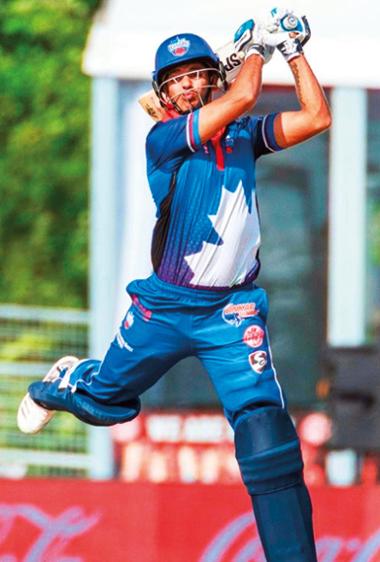
‘I wanted to give a platform to young cricketers in the UAE and break the myth that you always have to go abroad or to India to train professionally in a sport.’
It’s also the reason Chirag chose to play for the UAE instead of the Indian National team as a way to honour the country he grew up in, and it offered him the opportunity to shine in his chosen sport.’
‘The best part about coaching kids at the academy is that when you teach something, you tend to practise it yourself.’
Can a sporting career always guarantee financial security? Not really, says Chirag: ‘Back in the day sports wasn’t financially lucrative at all. But cricket today is one of the highest-paying jobs if you’re good at it. However, the satisfaction that comes from being good at a sport and a 20,000 crowd cheering you on can never be matched by a job that pays your bills,’ he says, citing the example from a match he played for the Toronto Nationals at the Global T20 in Canada earlier this month.
And sharing the pitch with stalwarts of the game such as Suresh Raina (his Gujarat Lions team captain) and Brendon McCullum and Yuvraj Singh, who are his teammates in the Toronto Nationals, is an added bonus.
And for those looking for additional reasons to pursue a cricketing career Chirag says: ‘cricket teaches you a lot of life lessons. I get to interact with people from different cultures and backgrounds and face so many different situations that teach me how to deal with pressure and failure.’






